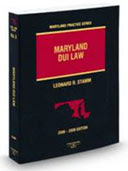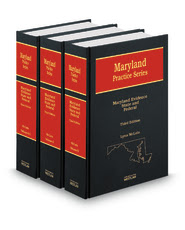The Maryland House of Delegates took the courageous step of passing Noah’s Law, HB 1342, with substantial amendments. The amendments make the bill a much more rational and humane way of encouraging sober driving while not unnecessarily punishing social drinkers or putting them out of work.
The law deals with test failures and refusals before court and the effect of convictions after court.
Under current law a person who submits to a test and has a reading of 0.08 or more and less than 0.15 faces a 45-day suspension for a first offense and 90-day suspension for a second or subsequent offense. On a first offense or a second or subsequent offense more than five years after the first the suspensions may be modified by an administrative law judge to allow restricted driving for purposes of work, school, alcohol education or treatment, or medical treatment for the licensee or family members. Noah’s Law changes this to increase the suspension periods from 45 to 90 days and 90 to 180 days. The proposed law also eliminates the work etc. permit provision and requires these offenders to get an ignition interlock for the period of suspension. The House amendments restore the work etc. permit but leave the increased length of suspensions in place.
For test readings of .15 or higher, current law provides for a suspension of 90 days on a first offense and 180 days on a second or subsequent offense. A licensee with a Maryland driver’s license may choose instead of the suspension to have an ignition interlock restriction for one year. Noah’s Law increases the suspension times to 180 and 270 days, respectively, but would require the ignition interlock for the period of suspension, rather than one year. The House amendments leave the increased length of suspension and restores the one year interlock restriction.
For refusals, under current law the suspension for a first offense is 120 days and for a second or subsequent offense is for one year. The Maryland licensee may elect to serve a one year ignition interlock restriction instead. Under Noah’s Law, the suspension times are increased to 270 days for a first offense and two years for a second or subsequent offense. Additionally the ignition interlock restriction would be for the time of suspension. The House amendments keep the length of suspension on a first offense at 270 days, provide for a one-year suspension on the second offense, and a two-year suspension on a third or subsequent offense. They also allow a Maryland licensee to obtain an interlock restriction for one year instead of the applicable suspension.
After a conviction under current law, and keep in mind that a first offender probation before judgment or PBJ is not a conviction, the license may be suspended or revoked as a result of the conviction and points, or the driver may elect to get an ignition interlock in order to keep driving. Additionally, the ignition interlock is required under current law: (1) where the person is convicted under § 21-902(a) and has a BAC of .15 or higher; (2) where the driver is convicted under §§ 21-902(a)(3) or 21-902(b)(2)(DUI or DWI with a minor in the car) and the minor is under 16 years of age. Interlock may also be required as a modification of a suspension or revocation (1) where the court orders ignition interlock; (2) after a conviction for § 21-902(a) or (b) within five years of a prior conviction under § 21-902; or (3) where there is a violation of an alcohol restriction by a licensee under 21 years of age. Noah’s Law makes the ignition interlock mandatory where it had previously been optional. Additionally, Noah’s Law requires ignition interlock for all offenders convicted under § 21-902 (a), (b), or (c). Additionally, the MVA could order ignition interlock with an additional work, school, or alcohol education or treatment restriction for licensees convicted twice within a five year period. The House amendments provide that any licensee convicted under § 21-902(a) must get the interlock. However, only offenders convicted under § 21-902(b) who are found by the court to have refused a test, or who are convicted of driving with a minor under 16 years of age are required to get the ignition interlock.
If you are facing criminal or traffic charges in Maryland state or federal court, call Leonard R. Stamm of Goldstein & Stamm, P.A. at 301-345-0122 for a free consultation.
Leonard R. Stamm
Goldstein & Stamm, P.A.
6301 Ivy Lane, Suite 504
Greenbelt, MD 20770
301-345-0122
(fax) 301-441-4652
www.dwiattorneymaryland.com
www.marylandduilawyer-blog.com
stamm.lenny@gmail.com
Dean, National College for DUI Defense

Author: 2015 update to Maryland Evidence: State and Federal by Professor Lynn McLain
“Patience, Perseverance, Persuasion”
 Maryland DUI Lawyer Blog
Maryland DUI Lawyer Blog


